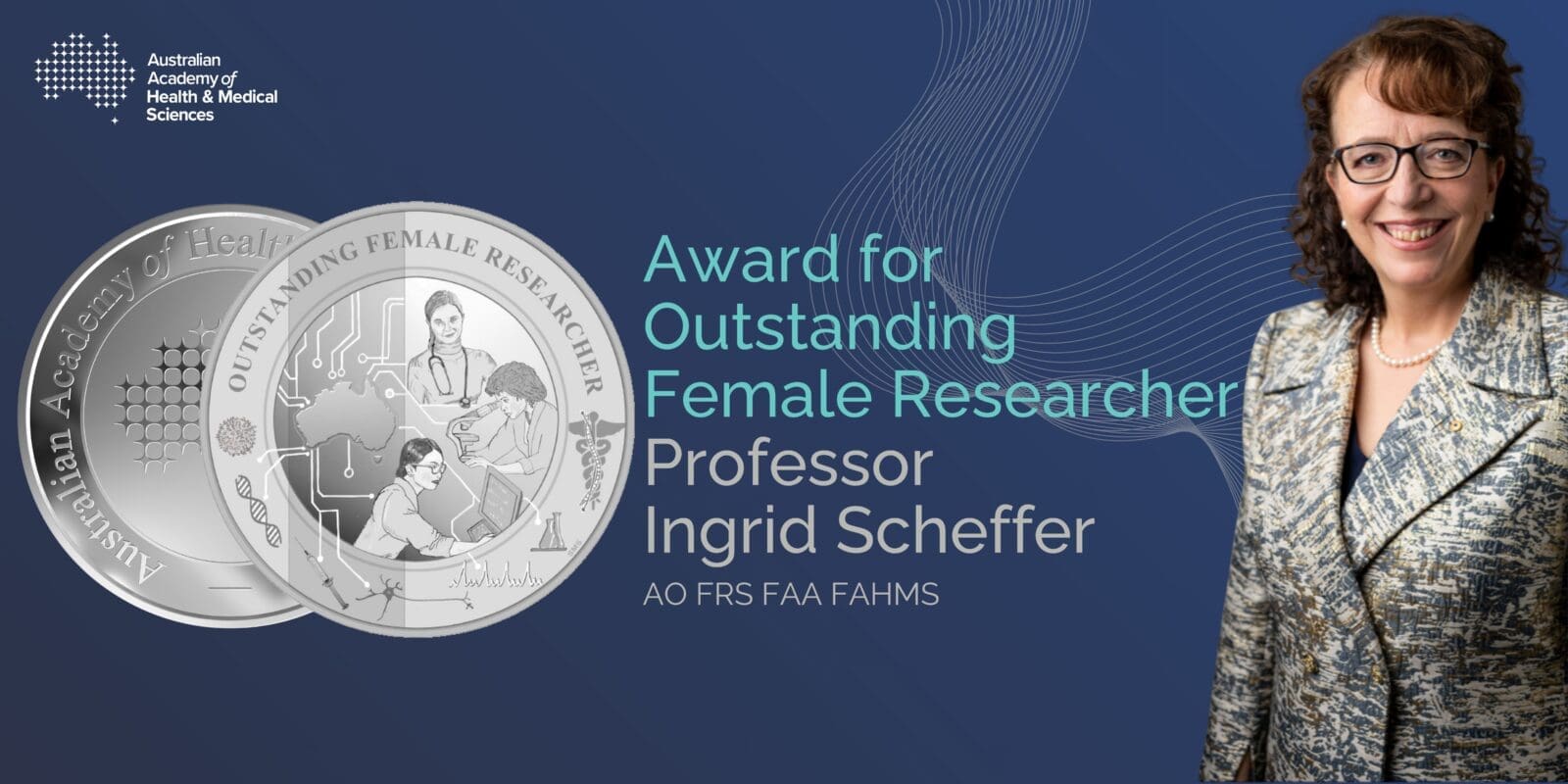A neurologist and epileptologist whose pioneering research has transformed the understanding and treatment of epilepsy has been awarded Australia’s most prestigious health and medical sciences award for women researchers, the Australian Academy of Health and Medical Sciences’ Outstanding Female Researcher Medal.
Laureate Professor Ingrid Scheffer AO FRS FAA FAHMS, Chair of Paediatric Neurology Research at the University of Melbourne and Austin Health, has been recognised for her groundbreaking work in establishing epilepsy as a genetic disorder, overturning centuries of misconception that it was primarily an acquired condition.
Her seminal clinical research led to the discovery of the first epilepsy gene in 1995 and since then she has been instrumental in the identification of many genes that cause epilepsy. Her leadership in defining the Developmental and Epileptic Encephalopathies (DEEs) has reshaped the field, enabling earlier clinical and molecular diagnosis of epilepsy and the large number of associated disorders, such as intellectual disability and autism spectrum disorder. Her work has paved the way for precision treatments, including gene therapy trials.
“I am deeply honoured to receive this award,” Professor Scheffer said.
“This medal reflects the work of an extraordinary team of clinician-scientists, together with scientists from an array of fields, who have been major contributors to our discoveries over more than three decades. So many wonderful families affected by epilepsy have worked with us to take the field forward. What drives me every day are the people – the children and adults living with epilepsy – their courage inspires us to push the boundaries of science and care. Our research has ended diagnostic odysseys for many families, enabled us to diagnose their associated medical conditions, and is transforming clinical care by enabling access to therapies tailored to the underlying genetic cause.”
But Professor Scheffer’s influence extends far beyond epilepsy. Her work has shaped the classification of epilepsy worldwide – while Chair of the International League Against Epilepsy Classification Commission, she led the first revision in nearly three decades, integrating scientific discoveries into a clinically relevant framework that continues to frame diagnosis and treatment across the globe today.
She is also a renowned leader in mentoring the next generation of clinician-scientists. She has supervised more than 90 higher-degree students and international fellows, many of whom have gone on to senior leadership roles across the world. In Australia, she founded the Academy’s Flagship Mentorship Program and the national “Life as a Clinician-Scientist” initiative, both of which have influenced thousands of emerging health and medical researchers.
“Mentorship has been one of the great joys of my career,” she said.
“It is immensely rewarding to see trainees develop into independent researchers and leaders who are driving health and medical sciences forward. Building a strong pipeline of clinician-scientists is vital to ensuring that discovery continues to translate into better health outcomes now – and into the future.”
Professor Scheffer’s achievements have been recognised with more than 80 national and international awards, including the Australian Prime Minister’s Prize for Science and the L’Oréal-UNESCO Women in Science Laureate for the Pacific Region. She has been elected a Fellow of the Royal Society, the Australian Academy of Science and the Academy of Health and Medical Sciences, and is consistently listed among the world’s most highly cited researchers.
The Academy’s Outstanding Female Researcher Medal is awarded annually to a leading woman researcher in Australia who has made transformative contributions in the health and medical sciences.
The Medal has been made possible by the generosity of The Gandevia Foundation, for which the Academy is most grateful. The award will be conferred at the Academy’s annual meeting in October.
Nominations for the 2026 Medal will open later this year. Learn more on the program website.

